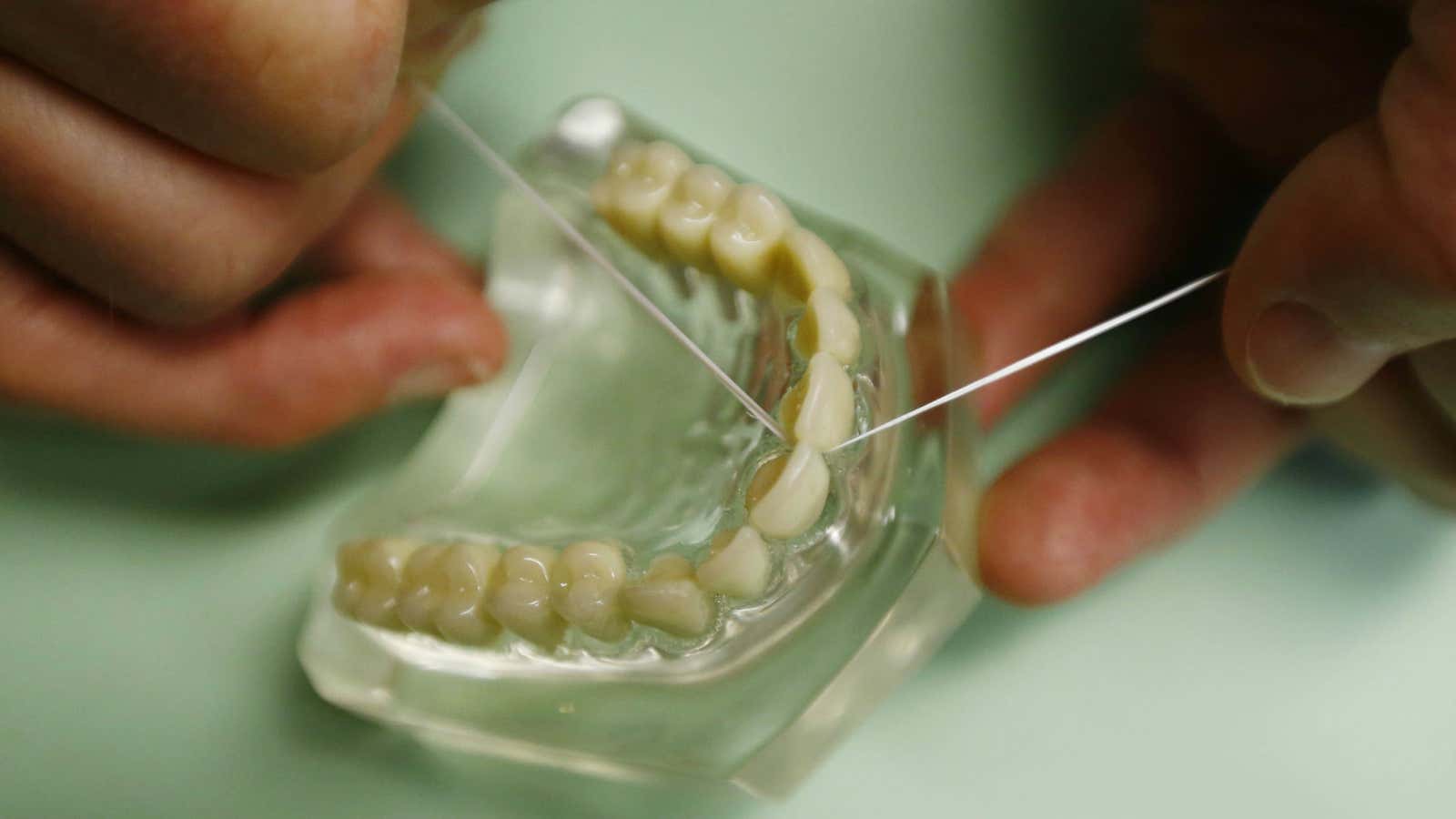The world woke to the smell of burning floss last week, as thunderous applause met news reports that there was, after all, no evidence for dentists recommending flossing. A lot of people, it seems, hate to floss. Some would rather clean a toilet.
But don’t throw out all those spools of waxed dental tape just yet.
It’s true that in response to an investigation by the Associated Press (AP) the US government “acknowledged the effectiveness of flossing had never been researched.” It’s also true that the latest US government-issued Dietary Guidelines for Americans published in June did not include advice to floss every day—a staple of dental advice all over the world and, according to AP, a standard recommendation since 1979.
What isn’t true is that science has proven flossing is bad, or that it does nothing for the health of your teeth and gums. According to the rumor-debunking website Snopes, what’s been missed by the mass media is the underlying problem: evaluating the impact of flossing on health is nearly impossible, and that means the government can’t in good conscience recommend it—even if almost all dental health experts believe flossing works.
Dentists have seen it with their own eyes: people who floss have healthier gums, because it helps get rid of gunk and bacterial build-ups that could cause problems later. Buts right now all we have is the anecdotal evidence of experience and not proper scientific proof. At least not to the extent required by the Institutional Review Boards that makes the decisions around official government-issued health advice.
Government health recommendations have to be based on scientific evidence, and the studies that supply such evidence have to meet the rules of the Board. Primarily, the Board requires successful clinical trials comparing one group of people given a treatment—in this case, flossing—with another “control” group who are given nothing. You then see if the treatment really does have an effect on what you’re studying—in this case, gum health.
But to properly evaluate flossing, you’d need a group of people to not floss for a pretty long time, possibly several years. That’s not really ethical nor is it particularly scientifically sound since there’s no way to control for dozens of other variables that could compromise the results. For instance, if you are telling a group not to floss, they might feel compelled to brush for longer to keep better oral hygiene.
There’s another problem. Trials aren’t conducted with Big Brother-style 24/7 surveillance, they’re done through check ups and surveys. But people are known to lie about their flossing habits. Scientists have to trust what the study participants tell them, and have no idea how often or to what extent people really are or are not flossing.
It’s no surprise then, that the scientific evidence for flossing has been found wanting. A thorough 2011 Cochrane review concluded that, while they couldn’t say there was evidence to support flossing that met proper scientific standards, “flossing is an effective adjunct to toothbrushing, as the important benefits outweigh any potential harms.”
It’s true, there is no evidence from clinical trials that proves flossing works. But just because the US government can’t in good conscience recommend it in official guidelines, that doesn’t mean flossing is useless.
